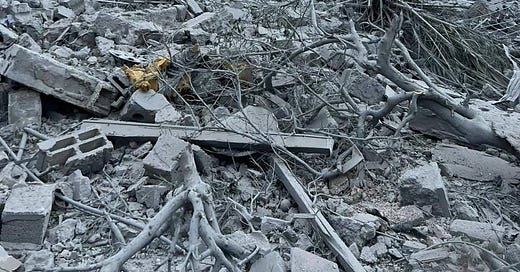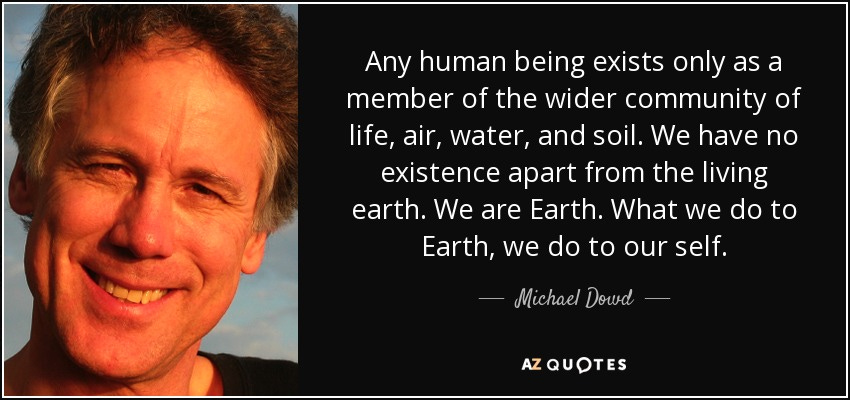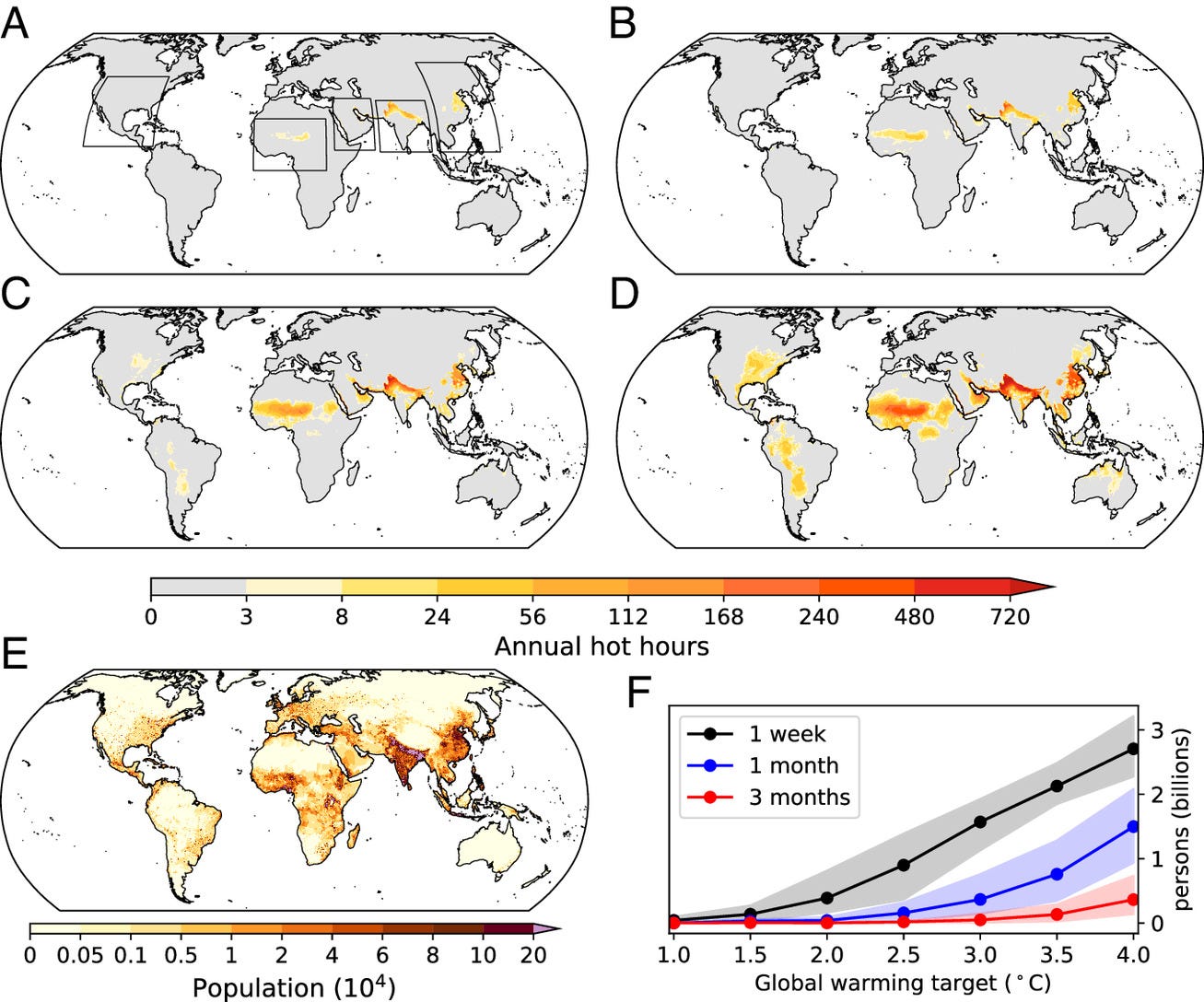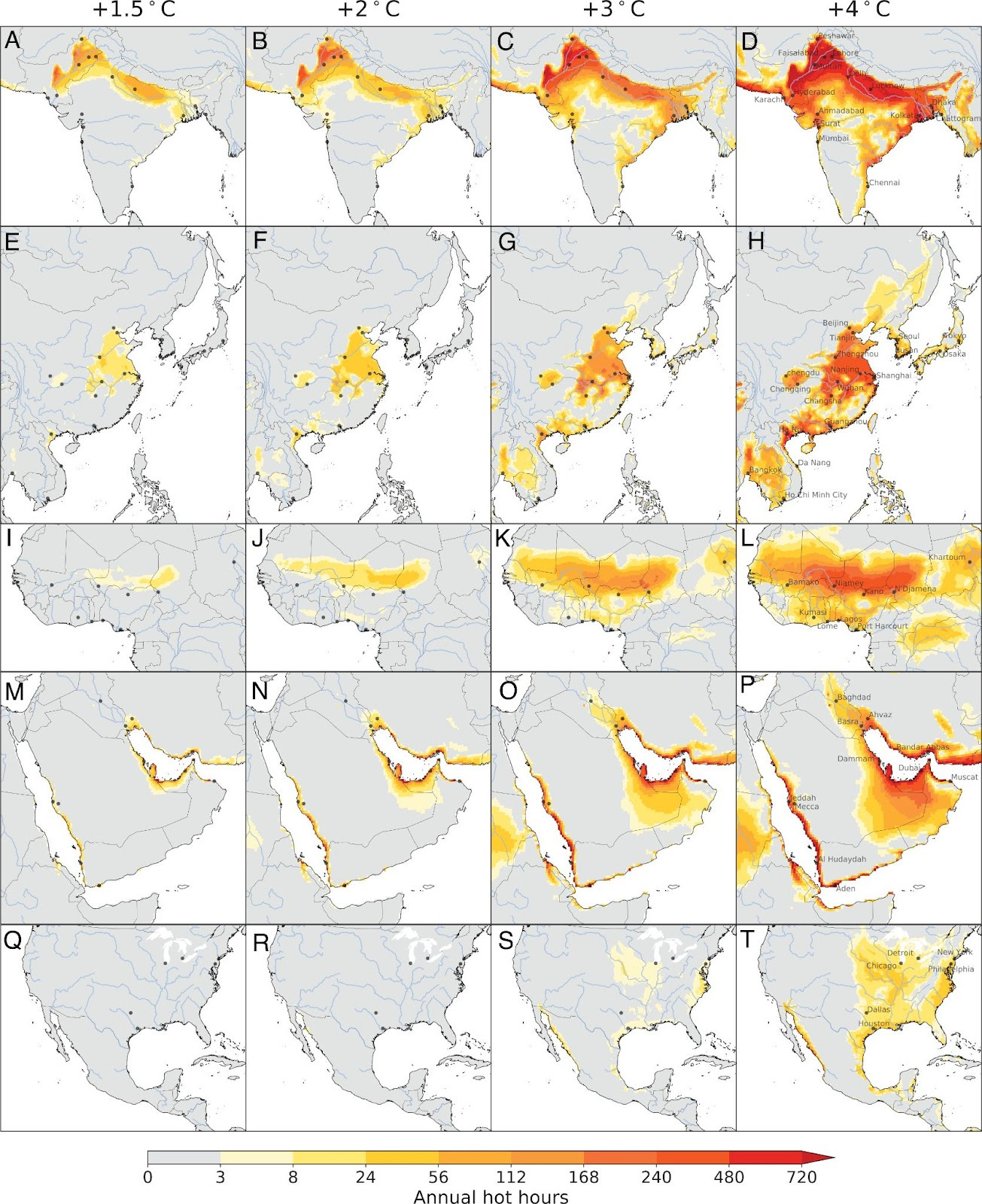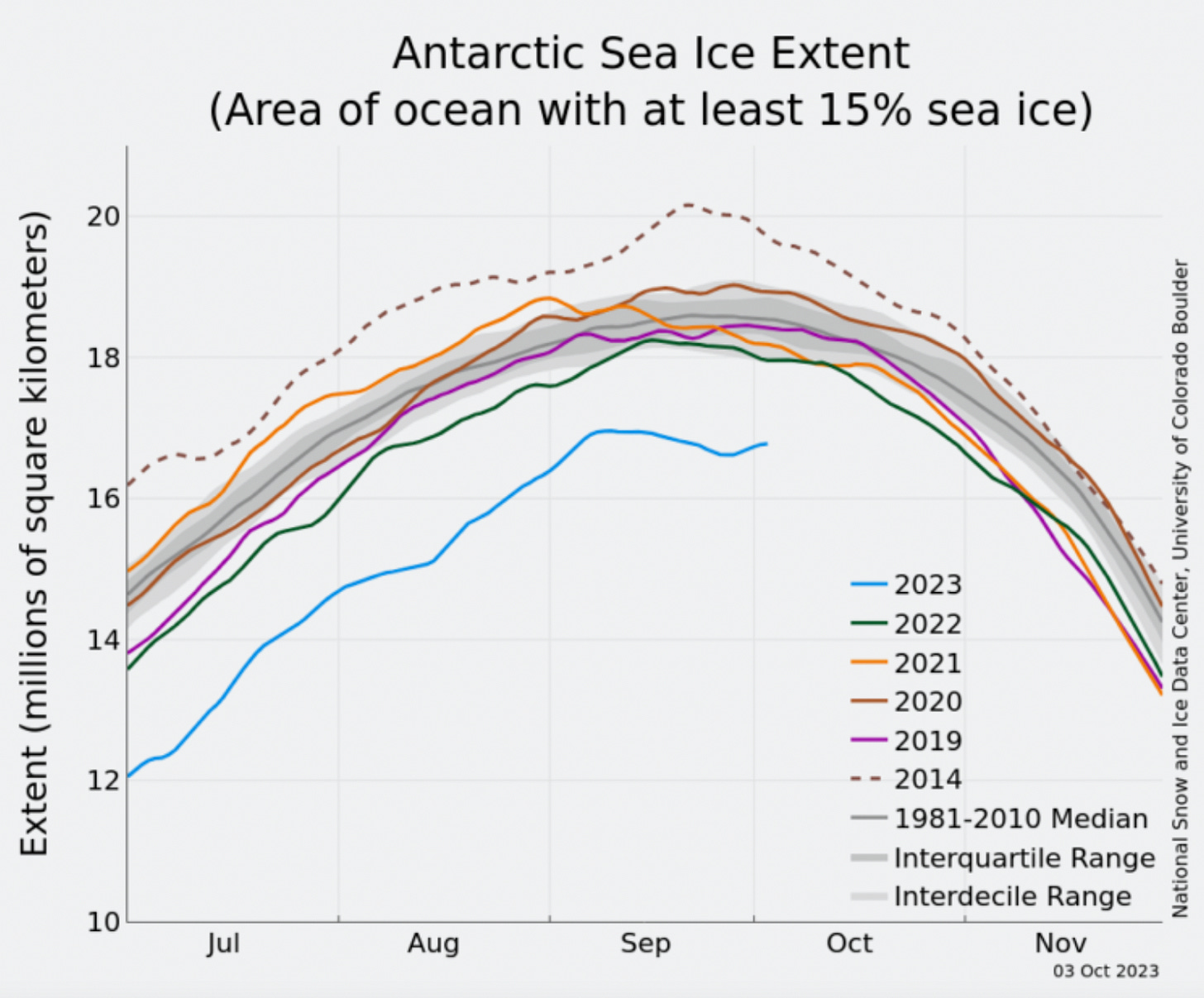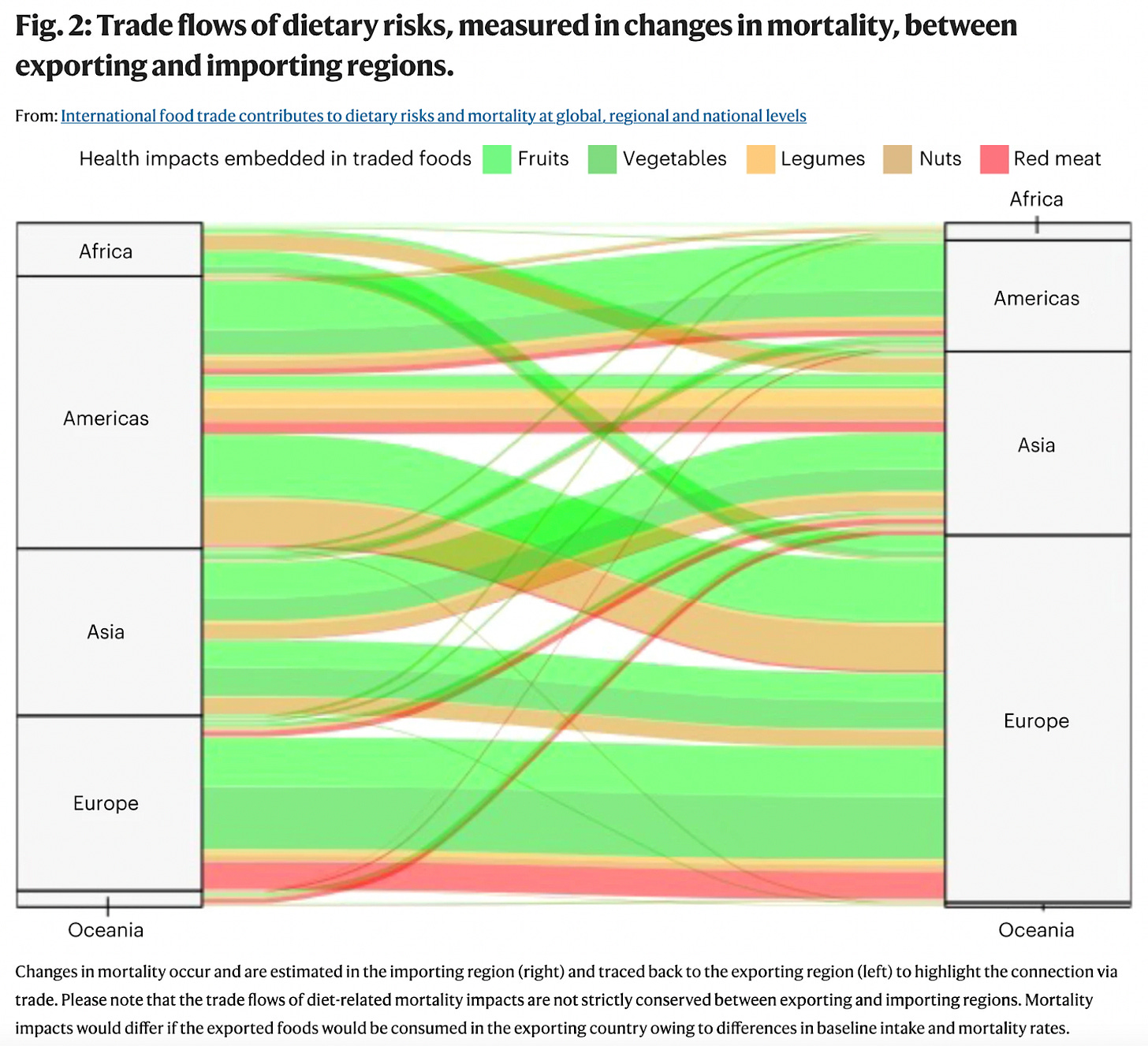Last Week in Collapse: October 8-14, 2023
Blockades, blackouts, and ballistics. Gaza is Collapsing.
Last Week in Collapse: October 8-14, 2023
This is Last Week in Collapse, a weekly newsletter bringing together some of the most important, timely, useful, depressing, ironic, astonishing, or otherwise must-see moments in Collapse.
This is the 94th newsletter, and it’s a long one. You can find the October 1-7 edition here if you missed it last week. Thank you for subscribing to the Substack.
In Memoriam: Michael B. Dowd, an influential voice in the Collapse community, passed away in his sleep. He was a founder of the “Post-Doom” community centered around making peace with Collapse and yet still living meaningful lives. He left behind a large body of work, including 80+ Soundcloud recordings, a growing YouTube channel, many interviews, books, and other resources. I did not follow his work closely, but now I feel our immense spiritual loss. Michael was a fixture in the subreddit and also one of my first subscribers. His tribute thread has the full story, and many loving comments. He was 64.
Drought. In the heart of the Amazon. Communities in Manaus are facing drought, the 900-mile Madeira River is at its lowest in decades, and the 1,400 Negro River is at its all-time lowest. Scientists are predicting a moody climate ahead. Some rivers have gone dry already. This is only the beginning.
Botanists released a 96-page report on the State of the World’s Plants & Fungi. It is about as pessimistic as you imagine: 45% of flowering plant species are at risk of extinction, particularly country-exclusive endemic species.
Tajikistan has become plagued by “another recent toxic sandstorm” caused from hyperpollution. Respiratory illnesses are increasing. Drought, livestock pressures, and deforestation also contribute to the hellstorms, which have become 10x more common over the last 30 years. Yet people will still not mask up for their own safety. So it goes.
The U.S. EPA is denying a petition to investigate “inactive” pesticide chemicals including various PFAS substances. This follows a redefinition of PFAS chemicals from earlier this year that enabled many PFAS molecules to remain in products without much fuss.
Five years of drought in Morocco has devastated its agricultural sector, which employs almost 40% of workers. The government has pledged to build at least 18 more dams by the end of this decade. Meanwhile, wildfires burn in Argentina, including one started by a camper trying to make coffee. Landslides in Cameroon killed at least 30.
Wet bulb heat stress effects are projected to be really bad at around 3 °C warming, based on an optimistic study from PNAS. Yet already wildfires and storms have wrought damage unto people worldwide—and we are not yet at 1.5 °C warming.
A study released last week in Communications Earth & Environment concluded that “changes in ocean temperature and oxygen drive a centuries-long irreversible loss in the habitable volume of the upper 1000 m of the world ocean. These results suggest that the combined effect of warming and deoxygenation will have profound and long-lasting impacts on the viability of marine ecosystems, well after global temperatures have peaked.” In other words, this is one tipping point that can’t be untipped.
Arctic sea ice hit new lows, according to data from September. 2023 has seen amazingly low ice levels compared with 2022 or previous monthly averages.
Flooding ravaged crops in Scotland. Two earthquakes in Afghanistan, each 6.3, killed 1,000+ people combined. Hurricane Lidia blasted Mexico’s Pacific coast. Mont Blanc is getting shorter every year as ice and snowfall are reduced.
Canada’s Supreme Court limited the federal government’s power to regulate the environment, empowering provinces and industry to harvest Canada’s natural resources more. Some are worried that Alberta wildfires may burn all winter long.
Drought in Ethiopia increases child marriages. Flooding in Somalia displaced 100,000+; flooding in Myanmar displaced 10,000+. New records made for temperatures in southern Africa. 100+ consecutive days of record global air surface temperature. October heat records broken in France. Hot weather leads to flooding. Record heat in Colombia too. Yet still countless people deny manmade global warming.
Humpback whales are moving to Arctic waters as the world warms. Salmon too are migrating to streams up north in Alaska where they have not historically bred. Atlantic plankton are dying from heat stress.
El Niño isn’t peaking yet—that’s expected in mid-2024, around May or June. Seems like a lot of things are converging next year… New patterns of water (drought, rain, ocean currents, moisture) are unfolding around the world in (un)predictable ways.
Deforestation in Bolivia soars. The Mary River in Australia is seeing fish kills after a year of drought. Indonesia and Australia also saw record heat for this time of year.
——————————
Fossil fuel subsidies in the Netherlands may be higher than previously estimated—much higher. The government estimated about 4.5B Euros, but some envoronmental organizations did their own math and concluded that fossil fuel subsidies account for about 10x as much, ranging somewhere between € 40B and 46B. I don’t know what to think anymore.
Fears are growing of a British financial crisis coming. Decoupling and fragmentation of global markets may lead towards destabilization; others believe this may insulate certain currencies and nations.
The death of pollinators is impacting coffee, fruit, and other foodstuffs. Food is being politicized, and control over, essentially, energy is becoming central in a world at War.
Another variant of COVID, B.2.86, codenamed “Pirola,” is becoming dominant around the world. It is not particularly deadly, but it has a large number of mutations, enabling it to more easily bypass vaccine “immunity” and infect people. When was the last time you spoke to someone about COVID? Are you still wearing masks? We are totally unprepared for the next pandemic…
Hunger in Guatemala is growing, a result mostly of climate change, which is particularly influential on weather patterns in the “Dry Corridor.” Guatemala has had consistently dryer than average years since the 1980s.
Epidemiologists are warning that dengue could spread to the United States and become endemic.
After banning most rice exports a few months ago, India is now banning sugar exports. India is the world’s second-most producer of sugar. A Nature study from last week claims that the diversity of food in international markets does not reduce human mortality—and instead contributes to “dietary risk.” Roughly 25% of all human food is traded internationally.
Lloyd’s, of London, concluded that the global economy could lose $1 trillion every year, in the future, due to climate change. Another study done about Carrington events shed light on how strong these solar storms can be, and the damage they could inflict.
Global borrowing costs for governments has increased in recent weeks, after the bond market surged frighteningly. The yield on U.S. short-term treasuries is higher than long-term debt securities, a sign of long-term pessimism. Are we in a bond bear market? It can be hard to follow global market tides if you’re living in extreme poverty and food insecurity, like 30% of the world’s population—2.4 billion humans.
Financial pressures in Pakistan are de-urbanizing some poor people, who have begun moving back to their villages. Europe was warned about a potential diesel shortage this winter. U.S. and Chinese debt are growing uncontrollably. And still global energy demand rises year after year.
——————————
Protests in Guatemala turned violent in their second week. Protestors are trying to sack a prosecutor who is reportedly trying to obstruct Guatemala’s president-elect from taking office. In the United States, House Republicans nominated a controversial figure to become the next Speaker of the House—but it’s unlikely he has the support to win the position.
NATO’s intelligence chief is warning that Russia may sabotage undersea cables to hamper Western nations for their support of Ukraine. The Zaporizhzhia Power Plant has staff shortages, and Putin made his first trip out of Russia since he was indicted by the ICC for War crimes. A Russian counteroffensive is underway in Avdiivka close to Donetsk, and North Korean materiel has arrived in Russia already. Russia’s human wave offensive is not yielding much progress, but Russian commentators allege that Ukraine’s much vaunted counteroffensive is now over, weeks before cold temperatures set in. Difficulties remain in negotiations over grain and fertilizer exports.
Kenya’s intervention in Haiti has been temporarily delayed by domestic courts. 29+ killed in an airstrike at an IDP camp in Myanmar. A suicide bomber killed 7 in Afghanistan. Migrants continue dying on the route to the U.S.
Keep reading with a 7-day free trial
Subscribe to Last Week in Collapse to keep reading this post and get 7 days of free access to the full post archives.

